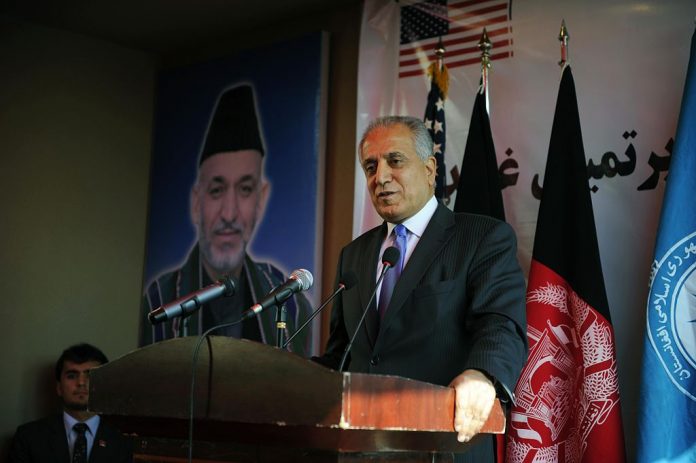Peace in Afghanistan is paramount to put the country on road to political stability. Only political stability can allow the atmosphere of freedom reign in the war torn country. For the stability to take root, the warring parties – the United States and Afghan Taliban – have been meeting at different platforms to strike a peace deal. However, the deal seems unlikely in view of the two sides’ failure to agree on a Common Minimum Programme to end the two-decade-long bloody conflict.
In fact, the lack of trust and credibility in the peace deal has dealt a big blow to Afghanistan Peace efforts. Washington believes that its exit from the country may see the use of its soil for objectionable purposes in the region. Therefore, the Taliban are supposed to agree that Afghanistan soil will not be used against the US. For this purpose, Washington wants an intra-Afghan dialogue. The insurgents contrarily believe that their interests, after the US exit, can be better served if the talks do not involve the Kabul government. In such a situation, reaching a peace deal takes a severe beating.
Speaking of the intra-Afghan dialogue, it is not out of place to say that the dialogue seems a tough ask because Afghanistan’s September election results are yet to be finalized while the leadership is contending the results with the preliminary round declaring president Ashraf Ghani as the winner. The result has not satisfied Chief Executive Abdullah Abdullah. In such a situation, the National Unity Government (NUG) will continue. The NUG has never been on the same page when it comes to negotiations with the Taliban with Abdullah accusing Ghani of foiling peace efforts.
So with internal politics of Afghanistan in a state of chaos and confusion, it is not an easy job to bring about a peace deal in the country. To realize peace, all Afghan groups have no option but to offer a united face, leaving aside their individual or groups’ interests. Only a united Afghanistan can prove strong to reap rich dividends from the negotiations.
Coming back to the Taliban-US talks, what is missing in their mechanism is the Confidence Building Measures (CBMs). Neither side has ever come up with a CBM to gain the other’s trust. CBMs are essential for the smooth and successful operation of their negotiations. One step can be agreeing on and holding to a ceasefire with a timeframe. Secondly, both sides can well stop finger pointing against each other. Thirdly, they can well announce to hold a conference in Kabul to understand each other’s perspective.
Meanwhile, President Ashraf Ghani has reported ‘notable progress’ in the talks underway in Doha and has said, “This is a welcoming development and I am pleased that our principal position on peace thus far has begun to yield fruitful results. Our primary objective is to end the senseless bloodshed,” . Yet only by realistically dealing with the conflict, a pathway to strike the peace deal can be found. Attaching conditions to get the deal done makes things complicated. While the Taliban wants a complete withdrawal of US troops, Washington wants a convincing ceasefire. Neither side has yet accepted the other’s conditions, making the peace deal tough to obtain.
Pertinently, the other major players like China, Russia, France and Afghanistan’s neighbors can play their positive part in bringing peace to Afghanistan. But these players have always approached the issue half-heartedly, leaving the two fighting parties alone. China and Russia, in particular, can provide a safe and secure platform to let talks go on decisively. Their silence or half-hearted approach has just seen the conflict go on. The region can see stability and peace if these regional players come out openly to support the ongoing US-Taliban dialogue.
On their part, both the US and the Taliban cannot afford to continue fighting as the talks continue. Both need to seek cooperation from the regional players like China, Russia, Iran and Pakistan to ensure successful end of the negotiations.
A stable and peaceful Afghanistan is in the best interest of the region. China-Pakistan Economic Corridor cannot go smoothly if the Afghan peace deal fails. Similarly, the other regional countries cannot see peace unless Afghan conflict resolves to the satisfaction of all the parties.
The views and opinions expressed in this article are those of the author and do not necessarily reflect the official policy or position of The Geopolitics.

Sheikh Shabir Kulgami is a Kashmiri (Indian) political commentator, analyst and columnist. He writes extensively on South Asia.


